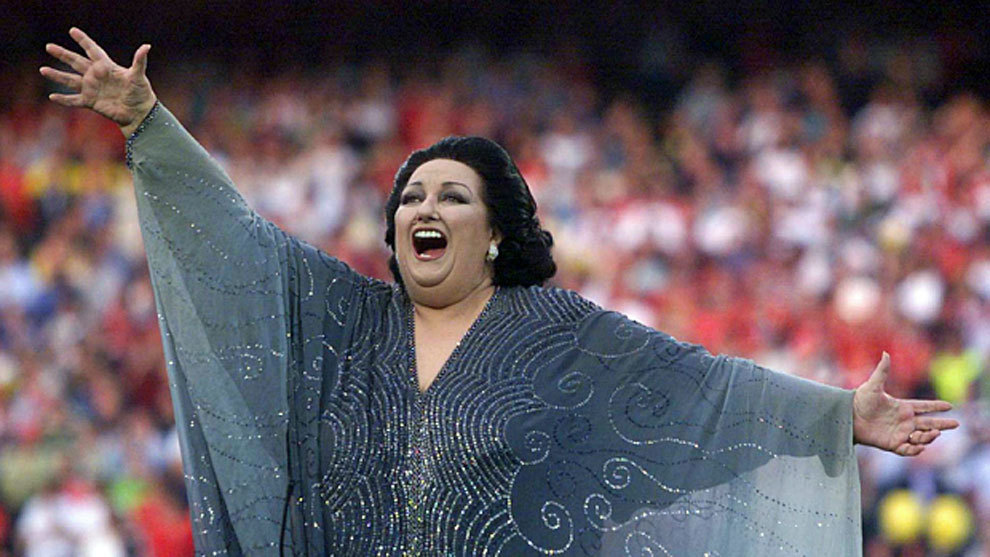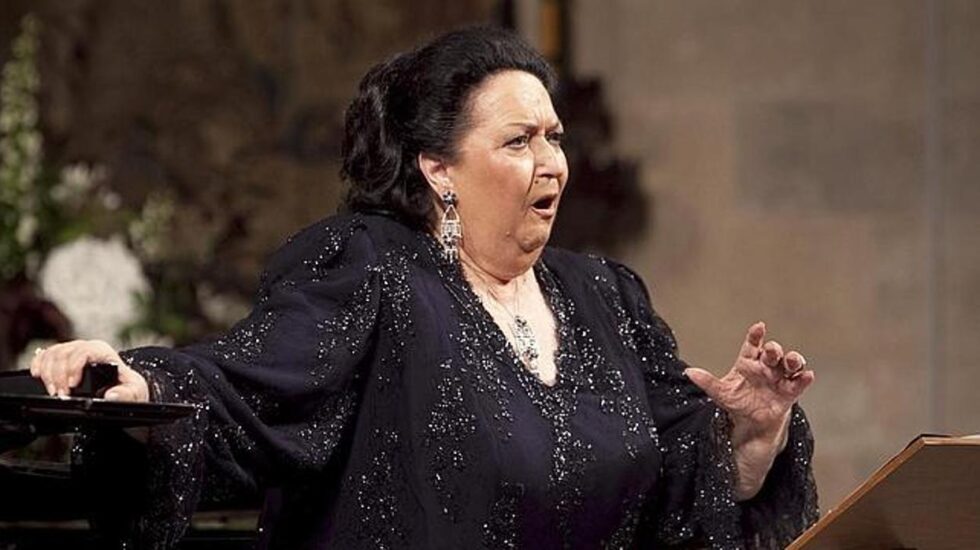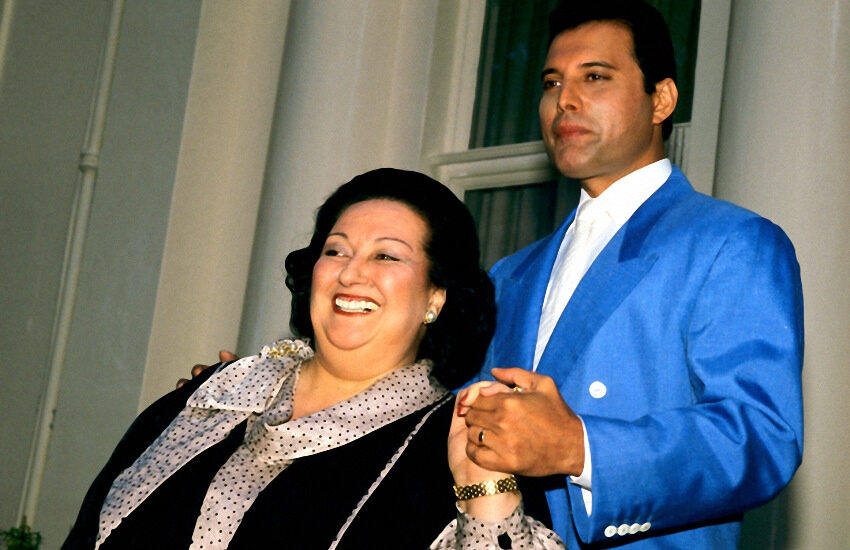Montserrat Caballé was a legendary Spanish opera soprano who dazzled audiences with her transcendent voice and versatile interpretations.

We will take a closer look at the life and legacy of this unforgettable singer, from her early days to her iconic performances and beyond.
Biography of Montserrat Caballé
Renowned opera soprano, Montserrat Caballé was born on April 12, 1933 in Barcelona. Despite her humble origins, it was evident from an early age that Caballé had musical gifts, and she began studying at the Conservatorio del Liceo de Barcelona at the tender age of nine. Her passion for art was evident, and Caballé’s career flourished for more than five decades.
Caballé was famous for her versatility, her command of several languages and her extensive repertoire. His vocal range was astonishing, and he could effortlessly reach both the highest and lowest notes. Her early performances were majestic, and she was often compared to the eminent Maria Callas. Despite his physical difficulties, his passion for opera never waned, and his legacy will be remembered by opera lovers for many years to come.
 First performances by Montserrat Caballé
First performances by Montserrat Caballé
Her extraordinary vocal abilities were evident from the beginning of her singing career. Her first major role, as Zdenka in Arabella, at only 24 years old, was hailed as a revelation. From then on, his performances at renowned venues such as the Metropolitan Opera in New York, La Scala in Milan and the Royal Opera House in London were extraordinary.
Her singing was often compared to that of the iconic Maria Callas. His voice was rich and powerful, but showed a remarkable ability to convey emotion. His technique allowed him to master even the most complex trebles. Her interpretations of beloved arias from operas such as La Traviata, Tosca and Carmen were impressive and established her as a great artist.
Role in Romanza Final
In 1986, the biographical film Romanza Final was a testament to the versatility of an artist. Taking on the role of Dolors Pascual, the mother of the celebrated Spanish composer and pianist Isaac Albéniz, the performance was acclaimed for its realism and depth, showing a different side of a talent rarely seen on stage. To further enhance the emotional weight of the film, the soundtrack included renowned performances by Montserrat Caballé, such as Casta Diva from Norma and O mio babbino caro from Gianni Schicchi.
Beyond the professional success of Romanza Final, the film also served as a tribute to Spanish classical music. He highlighted the splendor of the genre, as well as the importance of preserving it for future generations. In addition, the public appreciation of the film also increased awareness of Isaac Albéniz’s work, often undervalued in the field of classical music. Consequently, Romanza Final remains a treasure of Spanish cultural history, paying homage to the legacies of both Albéniz and Montserrat Caballé.
 Montserrat Caballé and Freddie Mercury – The Greatest Collaboration in Music
Montserrat Caballé and Freddie Mercury – The Greatest Collaboration in Music
When two great creative minds come together, music is assured. This was the case when the famous opera singer Montserrat Caballé and the legendary pop singer Freddie Mercury, from the group Queen, collaborated on their hit song Barcelona. This collaboration is remembered as one of the best in music history and, in this article, we explore how it came about and how it changed the face of the music industry.
Presentation of Montserrat Caballé and Freddie Mercury
Montserrat Caballé is one of the most famous opera singers in the world. A Spanish soprano, Caballé began her career in the mid-1950s, performing several leading and principal roles in European opera houses. In the 1960s he rose to international fame playing the title role in Verdi’s opera “La forza del destino” at the Metropolitan Opera in New York. His career continued to grow in the following decades, recording hits from the classical repertoire and musical works by composers such as George Gershwin, Francis Poulenc and Wolfgang Amadeus Mozart.
Freddie Mercury was the lead singer of one of the world’s most famous rock bands, Queen. His flamboyant stage presence and four-octave vocal range are legendary to this day. Born Farrokh Bulsara in Zanzibar in 1946, Mercury studied art and graphic design before forming the band Queen in 1971. His musical career was marked by massive success, and Queen’s classic albums of the 1970s and 1980s, such as “A Night at the Opera” and “The Game”, went on to sell more than 300 million copies in total.
A meeting of minds
In 1983, Mercury saw Caballé perform Verdi’s “Un ballo in maschera” at the Royal Opera House in London, and was smitten by her voice. In 1986, Mercury wrote the outline of a song entitled “Exercises In Free Love” and asked his colleague Mike Moran to create an arrangement for it. Moran visited Barcelona, met with Caballé and presented him with a demo of the song. She was so impressed that she agreed to record it herself.
The birth of Barcelona
The collaboration between Mercury and Caballé resulted in their most famous song, Barcelona, released in 1987. Written as a tribute to the 1992 Barcelona Olympic Games, it was an instant worldwide success. Songs like this were unheard of in the 1980s, mixing completely different genres of music such as
rock, pop and classical music. Since then, the song has become one of the most performed works of its time, and has won numerous awards, including the 1991 Grammy for Best Music Video.
In addition to the Barcelona studio version, the Mercury-Caballé duo also performed the song in public during the La Nit de Barcelona festival in 1988. The audience was delighted to see Mercury and Caballé performing together on stage, a moment fondly remembered by fans of both singers.
The impact of Mercury and Caballé
The legacy of the Mercury-Caballe collaboration is still felt today. The success of their song Barcelona, and the incredible musical chemistry between the two stars, has shown the world that musical genres can be fused to create something truly memorable, something that transcends the boundaries of classical, rock and pop. The song has also become an unofficial anthem for many people, a symbol of potential and hope for anyone who wants to break free from convention and create something new and unique.
The unique collaboration of Montserrat Caballé and Freddie Mercury will remain part of music history and both musicians are fondly remembered as two of the greatest creative minds of the 20th century.
Death and Legacy of Montserrat Caballé
A legendary figure in the world of opera, Montserrat Caballé’s death has left an everlasting mark. His impeccable vocal interpretations and memorable performances will remain in the hearts and minds of his fans and colleagues. Despite her health problems, Caballé continued to showcase her artistry until her final days, leaving a legacy that will be treasured for years to come. The music has suffered a great loss, but his memory will live on, inspiring and uplifting opera lovers.
A beacon for aspiring singers, Caballé was a role model for young people, who looked up to her with respect and admiration. His dedication to his craft and his kind and generous character influenced the lives of many people, both inside and outside the opera world. His influence will continue to influence and encourage future generations of singers and music fans.
The news of Caballé’s death has attracted many to her music, introducing them to her work for the first time. His relevance in the field of opera is undeniable, and his contributions to this art will be remembered for decades to come. Caballé’s story and career are a reminder of the power of music to cross borders and bring people together. His memory will continue to motivate and encourage people around the world, reminding us of the beauty and power of the human voice.
Style and versatility
The incomparable artistry of soprano Montserrat Caballé was evident in her wide range of emotionality and her ability to move effortlessly between different genres of opera. From Verdi and Donizetti to Strauss and beyond, Caballé’s interpretations were renowned for her deep insight into character and masterful vocal phrasing.
Her voice was marked by a purity and her repertoire was unparalleled, earning her a place among the most respected singers of her time.
In addition to her operatic prowess, Caballé’s versatility was demonstrated in her collaborations with popular musicians; most notably, her acclaimed performance of Queen’s Barcelona with Freddie Mercury. Throughout his career, he was not afraid to push the boundaries of the classical genre, experimenting with different musical styles and demonstrating his eclecticism. Caballé’s unique style and versatility make her one of the greatest sopranos of all time.
Humble beginnings
In humble circumstances, Montserrat Caballé ‘s family struggled to make ends meet. Despite this, he remained steadfast in his ambition to dedicate himself to music and began singing in choirs in his hometown. His talent soon became evident and, thanks to a scholarship, he enrolled at the prestigious Conservatorio del Liceo in Barcelona. Despite his family’s economic difficulties, he persevered and dedicated countless hours to practice.
Despite her success, Caballé never lost her humble attitude, always aware of the sacrifices her family made for her to achieve her dreams. Her efforts and dedication were rewarded, and she became one of the most loved and respected sopranos in the world. His story is a reminder of the power of perseverance and that even modest beginnings can lead to great things.

 First performances by Montserrat Caballé
First performances by Montserrat Caballé Montserrat Caballé and Freddie Mercury – The Greatest Collaboration in Music
Montserrat Caballé and Freddie Mercury – The Greatest Collaboration in Music